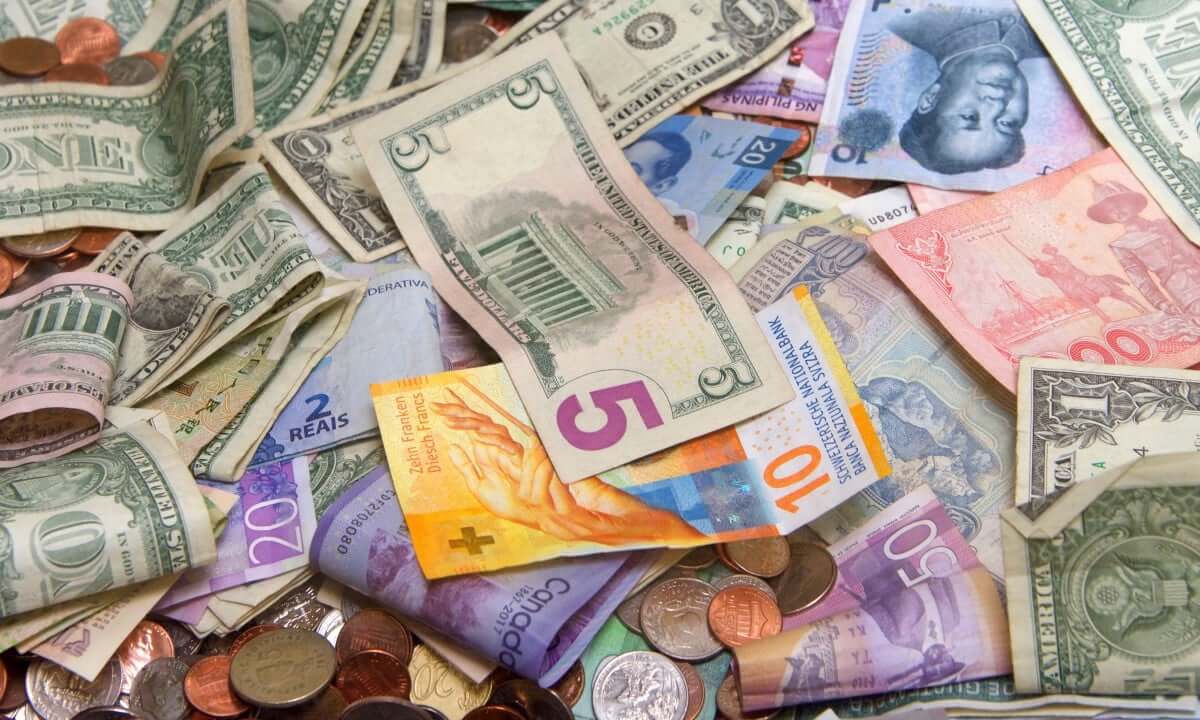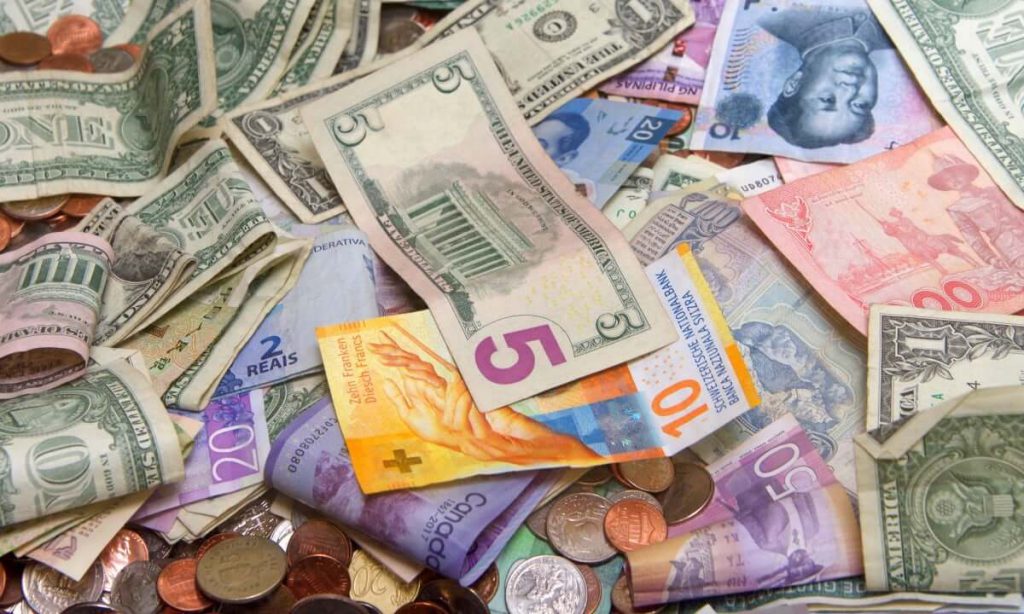
The Dollar Continues Rallying. What About Other Currencies?
The U.S. dollar traded in the green on Friday, recovering from its multi-month lows against the common currency and the British Pound. Market players are waiting for the results of a slew of major central bank meetings next week. The dollar index jumped by 0.2% to 101.930 against six major currencies, as the currency climbed up from near a nine-month trough to the euro and a seven-month low to sterling.
The U.S. Federal Reserve, Bank of England, and European Central Bank will announce their rate decisions next week. They will have to discuss what policy adjustments might be required in their battle with soaring inflation, especially considering the concerning global economic backdrop. Forex analysts did not expect big moves to end this week. They are waiting for a key U.S. jobs report next Friday.
Meanwhile, the euro plummeted by 0.1% versus the greenback at $1.08760. The Pound also traded in the red, shaving off 0.4% at $1.23670. Currency analysts at MUFG stated that the failure of the USD to break lower indicates that some turnaround is possible.
In Asia, the Japanese yen surged forward against the dollar. The higher Tokyo inflation readings caused bets that the Bank of Japan (BOJ) could, at last, move on a hawkish policy. The U.S. currency dropped by 0.3% to 129.900 yen. According to new data, consumer price inflation in Japan’s capital skyrocketed, hitting an almost 42-year peak this month. That news added pressure on the BOJ to move from its ultra-easy stimulus.
What Do the Analysts Say About the Central Banks’ Rate Decisions?
Shinichiro Kadota, the strategist at Barclays in Tokyo, noted that market expectations would remain high for changes at any time, including the BOJ’s next meeting in March. That will likely keep the Japanese currency bid. He thinks there’s a possibility of the USD/JPY pair breaking below 125.
Investors expect the U.S. Federal Reserve to hike interest rates by 25 basis points (bps) at its meeting next Wednesday. That would be a step down from a 50 bps raise the agency delivered in December. Meantime, the ECB will likely increase its key rate by half a percentage point.
On the other hand, the Bank of England has to control inflation without further damaging an economy as it’s already in recession. The bank will have to consider this challenge when it makes its next policy decision on Thursday. Analysts expect it to hike rates only by a half point.
How Are the EM Currencies Faring?
EM Asian currencies soared on Friday even though the U.S. dollar rebounded ahead of U.S. inflation data. U.S. economy bolstered regional shares. The latter hit an almost nine-month high. However, the Philippine peso declined and traded flat at last. The Malaysian ringgit surged forward by 0.2%, supported by stronger crude oil prices.
Both currencies seemed set for their third consecutive weekly gains, with the ringgit jumping by almost 4% year-to-date. It remains a bit behind the top-performing currency – the Thai baht. The Pakistani rupee steadied on Friday after declining against the dollar over the previous two days. Hopes of an aiding package by the International Monetary Fund slightly boosted the currency.
On Friday, MSCI’s broadest index of Asia-Pacific shares (not including Japan) rallied by as much as 0.55%. It skyrocketed to an almost nine-month peak, with Jakarta shares gaining the most. The latter added 0.8%. The baht, w top beneficiary of China’s abrupt relaxation of its coronavirus restrictions, tumbled by 0.4%. It stood to snap its five-week winning streak. At the same time, Indonesia’s rupiah plunged by 0.2% after gaining substantially earlier in the week. Despite that, the currency seems set for a third consecutive weekly gain.
Market players remained bullish on all nine Asian EM currencies for the first time in almost two years. TD Securities analysts noted that the rebuild in forex reserves boosts the constructive outlook on Asia Forex amid China’s reopening. Still, they don’t recommend chasing it, given that a lot is in the price.
Indonesia hinted at an early end to its tightening cycle, while Thailand’s central bank plans a measured tightening in the coming months. Seoul shares added 0.6%, while in Thailand and Singapore, stocks jumped by 0.5% each. However, Indian stocks plummeted by almost 1.6% due to Hindenburg’s report.


